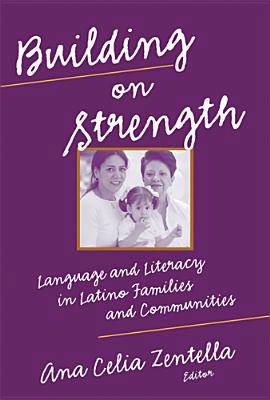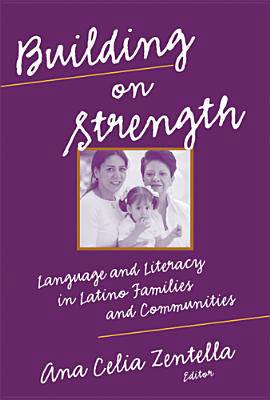
- Retrait gratuit dans votre magasin Club
- 7.000.000 titres dans notre catalogue
- Payer en toute sécurité
- Toujours un magasin près de chez vous
- Retrait gratuit dans votre magasin Club
- 7.000.0000 titres dans notre catalogue
- Payer en toute sécurité
- Toujours un magasin près de chez vous
Building on Strength
Language and Literacy in Latino Families and Communities
52,95 €
+ 105 points
Description
This book offers an exciting new perspective on language socialization in Latino families. Tackling mainstream views of childhood and the role and nature of language socialization, leading researchers and teacher trainers provide a historical, political, and cultural context for the language attitudes and socialization practices that help determine what and how Latino children speak, read, and write. Representing a radical departure from the ways in which most educators have been taught to think about first language acquisition and second language learning, this timely volume:
- Introduces the theories and methods of language socialization with memorable case studies of children and their families.
- Highlights the diversity of Latino communities, covering children and caretakers of Mexican, Caribbean, and Central American origin living in Chicago, San Antonio, the San Francisco Bay Area, Los Angeles, San Diego, Miami, Tucson, and New York City.
- Offers important insights into the ways in which children learn to speak and read by negotiating overlapping and/or conflicting cultural models.
- Suggests universal practices to facilitate language socialization in multilingual communities, including applications for teachers.
Spécifications
Parties prenantes
- Editeur:
Contenu
- Nombre de pages :
- 213
- Langue:
- Anglais
- Collection :
Caractéristiques
- EAN:
- 9780807746042
- Date de parution :
- 10-09-05
- Format:
- Livre relié
- Format numérique:
- Genaaid
- Dimensions :
- 160 mm x 231 mm
- Poids :
- 453 g

Les avis
Nous publions uniquement les avis qui respectent les conditions requises. Consultez nos conditions pour les avis.





